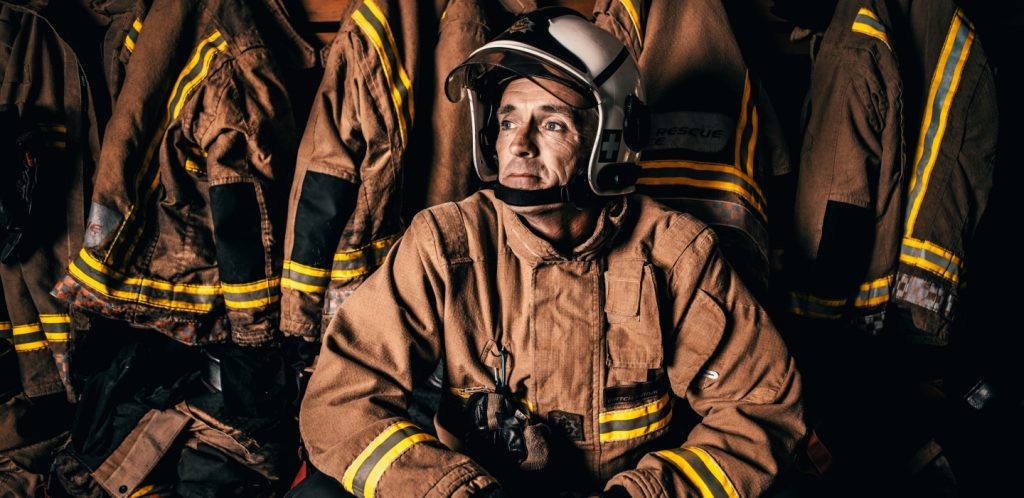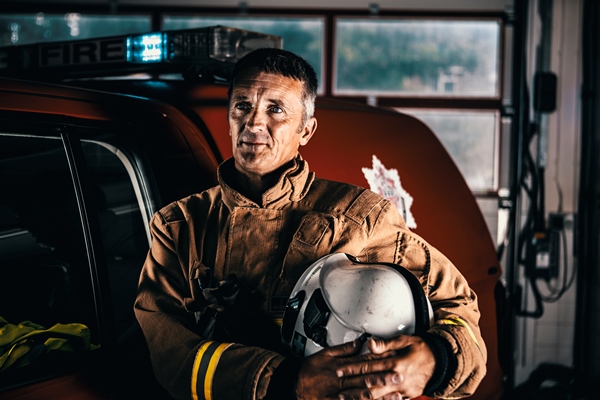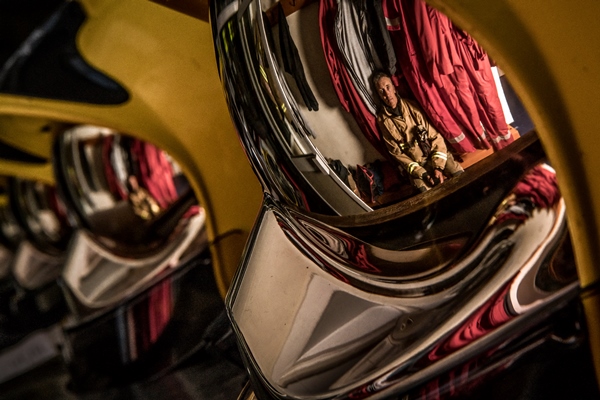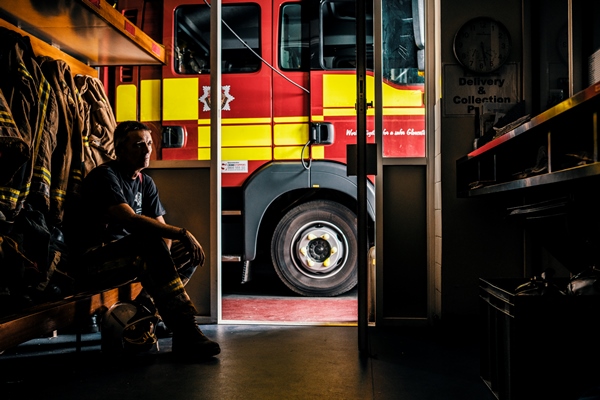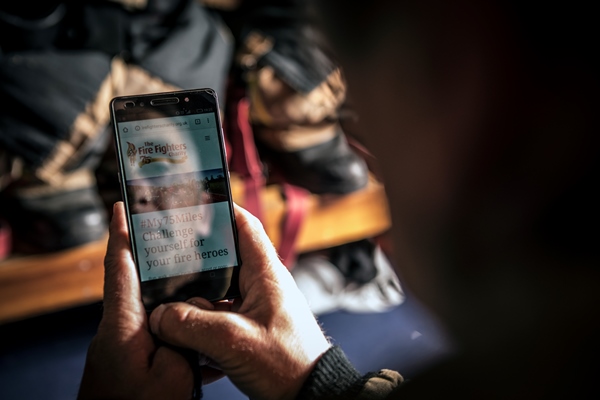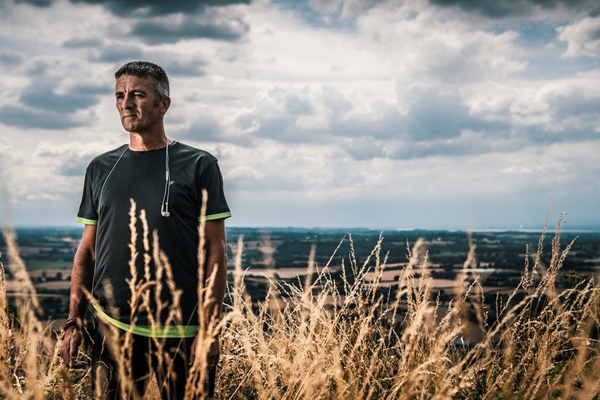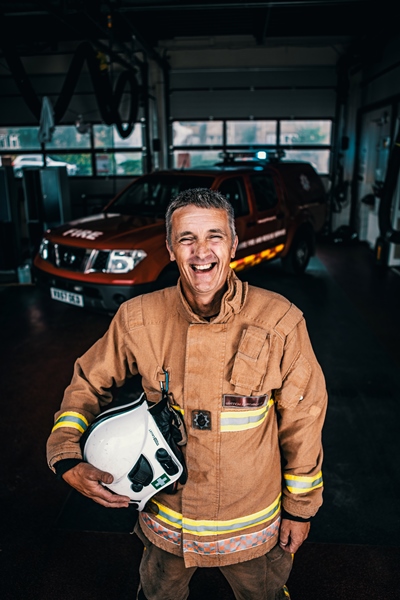Having worked as a retained firefighter for Gloucestershire Fire and Rescue Service for the past 32 years, Wotton-under-Edge Watch Manager, Mark Schofield, has seen his role and his Service evolve significantly, and attended more incidents than he could possibly care to recall.
“When I joined we wore the plastic trousers that melted when they got too hot and the basic cork helmet,” he recalls when Shout! meets with him for a photoshoot near to his Gloucestershire home. “I remember when I first joined I went to the station and the Watch Manager told me to get up the ladder, then crawl through a tunnel with a BA set on, then do a few other drills and then that was it. He said ‘you’re in’.”
A committed firefighter, Mark has enjoyed his years on the job, reflecting fondly on much of his career and the positive memories he has of shared experiences with past and present colleagues. However, Mark also admits freely that the cumulative effect of the countless incidents he has attended over the years has had an impact on his mental health and wellbeing. An impact that he is currently experiencing today.
“As a firefighter you have a good idea of what you’re going to experience but what you can’t always be prepared for is how it will affect you,” he explains. “Whenever you go to an incident involving a person it affects you, and you find different ways to cope with it.”
Balancing life as a retained firefighter with his other commitments meant that Mark’s struggles with the memories, sights and sounds of the incidents he attended inevitably impacted on his job working for the council as an Estates Manager, although it took
him some time to realise the connection and its significance.
“Certain noises, sounds and smells would give me flashbacks, making it hard to ever properly relax”
Mark Schofield
“Over a three-year period I thought life was just getting complicated and difficult,” he says. “It wasn’t until the beginning of last year [2017] that things started to get worse. I started to come home from work for longer periods than I should. When I was at work I was unable to properly focus and complete tasks. It started to affect my daily job as I would forget tasks and not be able to answer phone calls. I was constantly in my boss’s office being asked why things weren’t done and I would make up excuses.
“On the fire service side, I just lost interest, whereas usually I’m overly keen. Day to day jobs at the station weren’t being completed on time and I was letting things slip through the net. When I got back home I would just sit and stare. Again, nothing was getting done, I just couldn’t be bothered. I couldn’t sleep at night, so I would sleep at lunch times or early evening which then didn’t help at night, which became a vicious circle. Certain noises, sounds and smells would give me flashbacks, making it hard to ever properly relax.”
Mark began to feel constantly ill and started to experience crippling chest pains, causing him to fear that he was going to have a heart attack. The panic he felt was all consuming. However, after examination, Mark’s GP told him that his chest was fine and she asked him instead about his general wellbeing. It was at this point that Mark broke down and he was eventually diagnosed with PTSD. He was signed off work and off duties and began a course of medication to help him control his symptoms. However, a colleague recommended another route, as he explains:
“I knew about the charity from the day I first joined the Service and I’ve known many firefighters who have received support from them for physical injuries. I’ve donated money to the charity through my wages over the past 32 years. I have raised money through car washes and the carol float at Christmas, but I didn’t think of the charity at first when I was struggling. It was our Occupational Health advisor that recommended that I got in touch. I knew about the support they provided for physical injuries, but I hadn’t thought of it for mental health support. That’s part of the reason I want to share my story to let others know that they are here to help and the support they provide is first class.
“I contacted the charity myself online and they got straight back in touch with me and I had a telephone assessment. Then they recommended a week-long programme which would be tailored to meet my needs. I took up the opportunity and this was the start of my recovery.”
Mark’s personalised programme of support saw him attending a week of blended physical activity and psychological support at Harcombe House in Devon, an experience he believes has helped him to turn his life around.
“Even though I did the fundraising I never realised how much support the charity actually provided,” he says. “I thought it was just there to help if you broke your leg, or was somewhere you can go for some R&R if needed. Going to one of the centres for myself has opened my eyes to how much support they provide.
“It isn’t just about counselling and therapy sessions. They provide you with loads of great health information and advice on topics like exercise, nutrition, sleep and day to day stress. I cannot thank all the staff at the charity enough for their fantastic help and support.
“I’m doing the My75Miles challenge for the charity to raise money and give something back, but it is also part of my therapy”
Mark Schofield
“After nine months off work, medication and the charity’s support I was ready to return to work earlier this year. After a visit to Occupational health they suggested I may benefit from further support from the charity as they could see how far I had come. I got back in touch with the charity and they arranged another week for me. This week included three days of one-to-one psychological support sessions which helped put my demons to rest.
“I’m not too sure how it all works, but it does. During each session I felt totally drained, but my anxiety levels started to decrease and so did the pains in my head and chest, which was where I stored my anxiety. After day three of an hour session a day I was totally relieved of any anxiety or flashbacks. And now my demons are locked away.”
Also a keen runner, Mark has strapped on his trainers to help in his recovery and to raise money for the charity’s #My75Miles anniversary challenge.
“Taking up running was one of the suggestions that came from the conversations I had with my Psychological Therapist,” he explains. “The exercise releases endorphins and helps to clear your mind and makes you feel much better. Now that it’s summer I love going out early in the morning when it is quiet and running in the hills. There’s also loads of wildlife about in the mornings, there’s loads of deer in the forests where I run. I’m doing the My75Miles challenge for the charity to raise money and give something back, but it is also part of my therapy and it has had a big, positive impact on my health.
“I just can’t say enough good things about the charity. They have helped so much and it’s so great that they are there to support us and to get us back on the run. I would encourage everyone to take on their own My75Miles challenge and try to raise a bit of money, you can do it at your own level and own pace and it’s great for your health, both physical and mental.”

